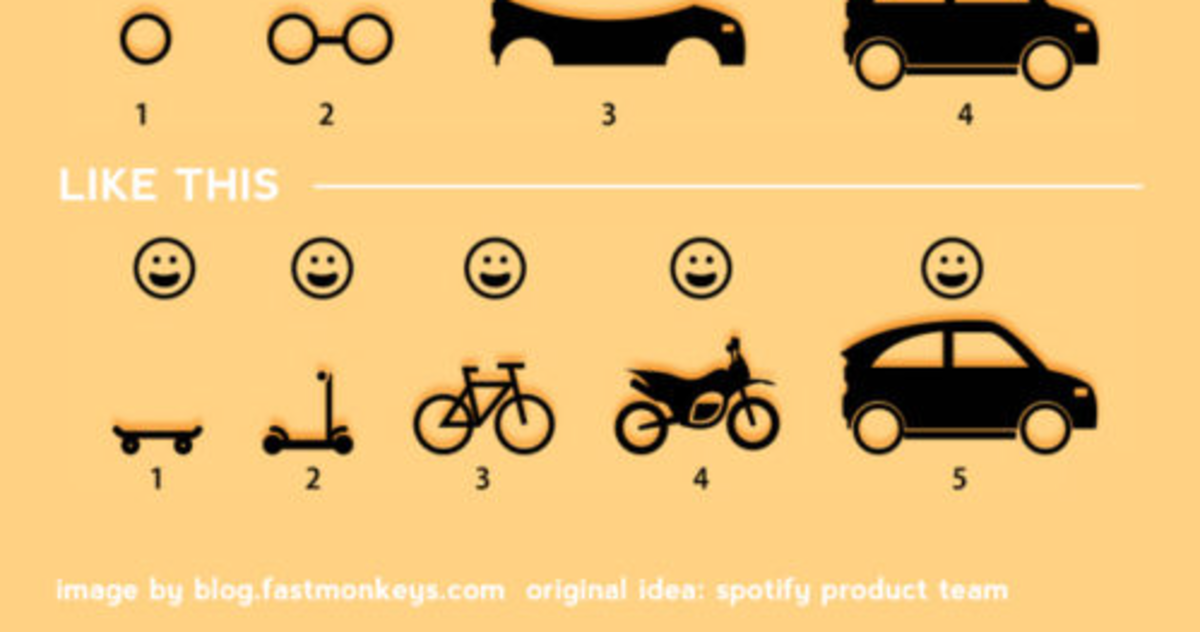Why Your Customers Hate MVPs and Prefer SLC Instead
Temel Kavramlar
Build simple, lovable, and complete products (SLC) instead of Minimum Viable Products (MVPs) to maximize customer satisfaction and value delivery.
Özet
The article discusses the drawbacks of the MVP approach in product development, emphasizing that customers dislike unfinished products. It introduces the concept of Simple, Lovable, and Complete (SLC) products as a better alternative that focuses on delivering real value to customers while being easy to use and complete. Examples like Google Docs, Snapchat, and Twitter are used to illustrate how simplicity combined with loveability leads to product success.
Özeti Özelleştir
Yapay Zeka ile Yeniden Yaz
Alıntıları Oluştur
Kaynağı Çevir
Başka Bir Dile
Zihin Haritası Oluştur
kaynak içeriğinden
Kaynak
longform.asmartbear.com
Your customers hate MVPs. Make a SLC instead.
İstatistikler
MVP is a selfish process that hurts customers.
Early versions of Google Docs had only 3% of Microsoft Word features.
Virgin Air and Southwest Airlines started with a single route each.
Products like WhatsApp, Snapchat, Stripe started simple but later expanded.
The first version of Snapchat was simple yet loved by users.
Alıntılar
"MVP is a selfish process that abuses customers for learning."
"Customers want great products they can use now."
"People have to want to use it."
Önemli Bilgiler Şuradan Elde Edildi
by Jason Cohen : longform.asmartbear.com 08-22-2017
https://longform.asmartbear.com/slc/
Daha Derin Sorular
How can companies balance simplicity and complexity in product development?
Companies can balance simplicity and complexity in product development by following the SLC (Simple, Lovable, Complete) approach. This involves creating products that are simple yet complete, focusing on delivering value to customers while being easy to use and understand. By starting with a simple version of the product that is lovable and complete, companies can then gradually add complexity based on customer feedback and needs. This iterative process allows for maintaining a balance between simplicity and complexity throughout the product development cycle.
Is there any merit in launching unfinished products despite customer preferences?
While some may argue for the benefits of launching unfinished products as MVPs (Minimum Viable Products) to quickly gather feedback from real customers, it is essential to consider whether this approach aligns with customer preferences. The context provided suggests that customers generally dislike MVPs due to their incomplete nature. Instead of launching unfinished products, companies should focus on creating Simple, Lovable, Complete (SLC) products that provide immediate value to customers while still being simple enough for them to use and love. Ultimately, prioritizing customer satisfaction over quick iterations through MVPs can lead to better long-term success.
How does the concept of loveability impact product success?
The concept of loveability plays a crucial role in determining the success of a product. Products that are loved by users tend to be more successful than those with more features but lack user engagement or satisfaction. Loveability encompasses factors such as elegant design, delightful user experience (UX), transparency in communication, deep connection with target audience psyche or work-style among others mentioned in the context above.
By focusing on creating products that users genuinely want to use because they find them lovable - either due to their simplicity or unique value proposition - companies can increase adoption rates and build strong brand loyalty. Loveable products have higher chances of resonating with customers emotionally which leads not only increased usage but also positive word-of-mouth recommendations driving further growth and success for the company's offerings.
0
